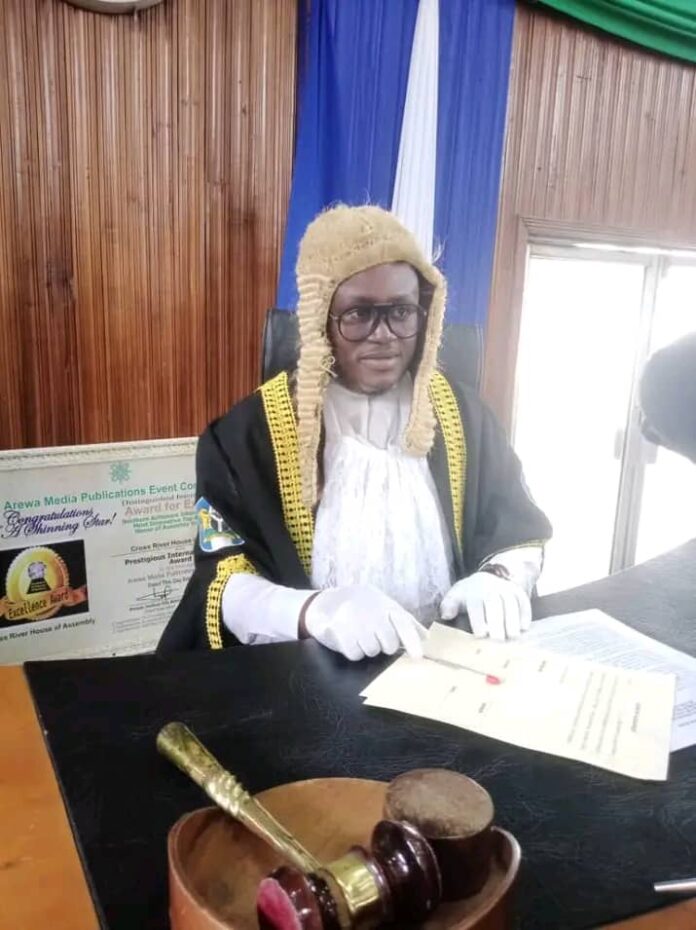Cross River State, Nigeria – The ongoing screening of commissioner-designates by the state legislature in Cross River State has raised concerns about two critical issues that threaten the credibility of the process. The House Committee on Judiciary/Petition and Conflict Resolution, led by Rt. Hon. Dr Davies Etta, faces a significant challenge in fulfilling its mandate of thorough vetting and scrutiny of the nominees. The first concern arises from the practice of asking former lawmakers, who are nominees, to ‘take a bow’ without undergoing the standard screening process. The second issue stems from the executive’s failure to attach portfolios to the nominations, leaving the committee in a quandary about the specific roles each nominee will play in the state administration. This editorial delves into the impact of these trends and how they undermine the interests of the electorate and the public.
The tradition of allowing former lawmakers who are nominated for commissioner positions to ‘take a bow’ during the screening process raises questions about the accountability and transparency of the state legislature. By exempting certain nominees from rigorous scrutiny, the House Committee risks compromising the quality of the evaluation process and diminishing public confidence in the state’s governance. The electorate deserves assurance that all nominees, irrespective of their previous positions, are held to the same standards of accountability and competence.
The practice of asking nominees to take a bow is a disservice to the electorate because it prevents crucial questions from being asked. Screening is a vital mechanism for ascertaining the suitability of nominees to serve in positions of public trust. By bypassing this process for certain individuals, the state legislature fails to exercise its oversight responsibilities, thereby undermining the principle of checks and balances.
Equally troubling is the state governor’s failure to attach portfolios to the nominations, leaving the committee members uncertain about the roles each commissioner-designate will assume. Without a clear understanding of the specific responsibilities assigned to each nominee, the committee’s ability to conduct an effective and targeted scrutiny is severely hampered. This lack of clarity not only frustrates the screening process but also inhibits the committee’s ability to assess the nominees’ qualifications for their respective roles.
The absence of portfolio attachments perpetuates a lack of transparency and openness in the state’s governance. The electorate and the public have a right to know the expertise and experience each nominee brings to their designated roles. Without this crucial information, the credibility of the screening exercise becomes questionable, and the trust between the government and the governed is eroded.
Furthermore, the failure to attach portfolios renders the screening process incomplete, leaving the public in the dark about the government’s strategic vision and the team’s qualifications to execute it. The electorate deserves to know how each nominee will contribute to the achievement of the state’s development objectives and how their skills align with the demands of their positions.
The legislative and executive arms of the government must recognise that these trends diminish their roles as representatives of the people. The electorate entrusted them with the power to oversee the governance process and ensure that only competent individuals serve in key positions. By allowing former lawmakers to take a bow and failing to provide necessary information about the nominees, the government falls short of this sacred responsibility.
In conclusion, the challenges with the screening process for commissioner-designates in Cross River state call for urgent reforms to uphold the principles of accountability, transparency, and public trust. The state legislature must refrain from exempting nominees from thorough scrutiny based on their previous positions and instead commit to evaluating all candidates equally. Additionally, the state governor must attach portfolios to nominations, providing clarity and transparency to the screening process. Only by addressing these issues can the state government restore the confidence of the electorate and demonstrate its commitment to good governance.
Efio-Ita Nyok is the editor of NEGROIDHAVEN. Writes from Calabar, Nigeria.








